“Death and the Santa Ana Winds”by Salvador Ayala When Robbie Austin carelessly flicked his cigarette butt into the side of a hiking trail in the Los Angeles National Forest, he could not have known that he would bring a day of bloodshed and terror to a fiery close. Nor could Elisa Martinez have anticipated that her plan to seek revenge for her grandparents would receive help from an unexpected quarter. Elisa was the only one in her family who still made time every Sunday to drive Abuela to church and then take her out for brunch before returning her to the cramped apartment in the senior living community. Abuela could be thorny and never minced words, but Elisa didn’t mind. When Elisa’s parents had thrown her out of the house at sixteen for daring to have a boyfriend, Abuela had welcomed her with open arms. When Elisa spent a weekend in jail for breaking a beer bottle over her abusive brother-in-law’s head, everyone else tut-tutted, but Abuela gave her a long hug and said, with a mischievous gleam in her eyes, “I’m glad you rearranged that puto’s face.” So, when Abuela sunk into a dark depression, Elisa was the only one who noticed and cared. It took three Sundays for Elisa to get even a hint out of her, with Abuelita simply muttering, “It’s just something I saw on Facebook.” It took another three Sundays for her to finally reveal what was bothering her. “It has to do with Camp Bava.” Those two words were forbidden in the house when Elisa was growing up, but everyone in the family knew the broad strokes of the story. In 1971, Abuelita’s boyfriend had snapped and killed eleven teenagers at a summer camp. She was the only one who survived the slaughter. At first, Abuela had insisted that he was innocent, that someone else had done it. The police ignored her pleas because they were more than happy to pin the crime on a convenient scapegoat. That that scapegoat was some pesky-ass Brown Beret was icing on the cake. To make matters worse, her parents refused to believe her account of events and later disowned her when they discovered she was pregnant with a murderer’s baby. Abuela went on to have other children and the semblance of an ordinary life, but she shut down whenever anyone mentioned the summer of 1971, so her family learned to stop bringing it up. Over the years, she refused interviews from curious reporters and bloggers, many of whom painted her out to be an accomplice. “You want to talk about it?” Elisa asked. “No. Not if you’re going to make fun of me like everyone else.” “Come on. You know me better than that.” “Fine. Here goes. Lalo and I were camp counselors. It was supposed to be a way for all these Chicano kids who couldn’t afford Boy Scouts to get this nice camping experience. We were there less than three days when campers started to disappear. On the fourth day, we found one of the missing girls. You should have seen her. All shriveled up. The poor thing looked like a dried apricot. That’s a detail the cops never released, you know? It didn’t fit their story. After we found her, we packed up to leave. We were all trying not to panic, and Lalo kept us levelheaded. He was always a natural leader. Sometimes I wonder where he would have ended up if...” Elisa could see the tears beginning to well up in her grandma’s eyes. Her mother always said that Abuela was a cold, unfeeling woman, but Elisa knew there was a deep reservoir of feeling beneath the surface. “Anyway,” Abuela continued and gulped down what might have been the start of a sob. “This is the part the cops refused to believe. Everyone tried to convince me I imagined it, that I had tried to make sense of the trauma by making up some boogeyman. I didn’t. I never stopped believing in what I saw. We were about to get into our bus when one of the campers screamed. Standing between us and the bus was that thing. He was a stringy-looking guy, all dried up, almost like that poor girl we found. He was dressed funny, you know? In a kind of tux. The kind you imagine those people in old, black-and-white Hollywood movies wear. Except the tux was all torn up and eaten away at parts. Probably the worst was his face, especially the eyes. They glowed red even in broad daylight. And the glow only got stronger when he grabbed hold of the screaming camper and started to feed.” “Feed? Like a vampire?” “No. No un vampiro. I mean, it attacked us in the middle of the day. But…I don’t even know if feeding is the right word. I just remember it taking hold of Rocky—that was the camper’s name—and Rocky screaming and then not screaming because it was like the thing had drained all the life out of him. That was the only time I saw it feed. When it came after the rest of us, it just attacked us with its bare hands.” “How did you survive?” “I got lucky. El Dandy. That’s what I remember calling it ‘cause of the way it was dressed. El Dandy cornered me and Lalo and the last surviving camper at a dock off the lake.” She paused, and Elisa noticed a flicker of pride in Abuela’s eyes. “I don’t think that monster was expecting a fight. We had a little bit of combat training. We were going to be the revolutionary vanguard, after all. Lalo came at it with an axe. The one we used to chop wood for the campfire, I think. But the monster caught him by the neck, and Lalo dropped the axe. It was choking the life out of him. I had to do something, so I grabbed the axe and swung. Managed to hack off the arm just beneath the elbow. Here’s the messed up thing, mija. No blood came out. Nothing. Como si nunca le hubiera corrido sangre entre las venas. It looked surprised and then angry, and it swatted me away. It was so strong. It sent me flying into the lake.” Abuela began shivering as if telling the story was purging her of years of fear, anger, survivor’s guilt, all sorts of bad feelings that had coagulated inside her. “Broke a couple of my ribs. Never really healed right. Sometimes, I have a hard time breathing.” “You don’t have to keep telling me this,” Elisa said, “Not if it’s too much for you.” “I have to.” Abuela sighed, “I don’t know why it didn’t come after me. I sank and then washed up on a far corner of the lake, and then I passed out from the pain of my broken ribs. When I came to, some cops were wrapping a blanket around me. They’d question me later, but I don’t know why they bothered. They found the last camper, Bennie. I remember his name now. They found him bleeding out right next to Lalo. The thing had buried the axe in Lalo’s chest and returned to wherever it came from. From there, it was easy for the pigs to piece together what happened. Lalo snapped, they said. Bennie had died defending himself and ended Lalo’s rampage—supposedly. My mind, unable to recognize that my boyfriend was a psycho, had concocted this whole monster story. They closed the case and shut down the camp, and everyone moved on.” “But you didn’t.” “How could I? Lalo was the love of my life. No disrespect to your other grandpa—que en paz descanse.” “What happened with the monster?” “El Dandy is still out there. I’ve kept tabs on missing people over the years. A hiker or two every decade or so. Nothing big enough to draw anyone’s attention, but I know he’s still out there. And then there’s this.” She showed Elisa what had sent her into a spiral so many weeks ago. It was a Facebook ad from an up-and-coming True Crime podcast. It read: Join Ethan and Karlie, hosts of THE MURDER BUDDIES podcast, for a weekend of chills! We’re doing a live recording at the site of the 1971 Eduardo Velez murders! Bring your graham crackers and marshmallows and bug spray! Join us for a spooky good time at Camp Bava! CLICK HERE FOR PRICING. VIP PACKAGES AVAILABLE. “Fucking gringos,” Elisa muttered darkly. “A bunch of brown kids get hacked to pieces, and they turn it into a sleepover party.” “I’m not mad about that. I mean, I am. But I’m also not. You live as long as I have, and you get used to this sort of thing. Our suffering don’t matter to them. I’m just worried for these people. If they go through with it, that demon out there is going to tear right through them. I feel so…powerless.” But Elisa didn’t feel powerless. Abuela had basically raised her and imparted on her these words of wisdom from an early age: “You can be a lot of things, mija. You can be smart. You can be successful. You can be a bitch. But what I never ever want you to be is a victim.” As soon as she was old enough for it, Elisa enrolled in several self-defense classes. In high school, she gained a reputation for clobbering bullies and racists, much to her mother’s chagrin. Elisa later enlisted and started a business training stunt actors for filming fight scenes with weapons. She would not be caught unprepared for a fight. The Murder Buddies didn’t deserve her protection, but she couldn’t let history repeat itself. She hoped that she could discourage them from recording their episode. Part of her hoped El Dandy wouldn’t show up at all. But a larger part of her wished he would. Nothing would make her happier than ending his reign of terror. El Dandy robbed her grandmother of her youth, joy, and health. He had killed Elisa’s grandfather, who was never properly mourned and had his name dragged through the mud. El Dandy had to be stopped, and the circle of her grandmother’s tragic story had to be closed. That is why she bought a VIP package and a small but sturdy axe and drove up to the ruins of Camp Bava on a hot, windy September afternoon. On the drive up, she listened to the episode on the murders. The hosts, bubbly and irreverent, floated theories about Lalo’s mental breakdown in between ads for mattresses and food delivery services. They pointed out that he came from a broken home, that his best friend was killed by police, that mental illness ran in his family. There was barely any mention of his activism and no mention at all of Abuela’s account of events. Since she was listening to The Murder Buddies, she missed a very important announcement about precautionary evacuations that were underway in response to a sudden wildfire in Porter Ranch. By the time she marched up to the fire pit at the center of the camp, she was ready to give the podcast hosts a piece of her mind. The festivities were already well under way. Everyone gathered around a crafts table with all kinds of summer camp inspired treats: deconstructed PB & J sandwiches, sloppy joes on buttered brioche, chocolate martinis lined with graham cracker crumbs, and so on. No expenses had been spared. All the other guests were dressed appropriately, sporting cutesy backpacks, tiny shorts, and their complementary CAMP MURDER BUDDIES t-shirts. The dilapidated cabins encircled the communal fire pit, looming over the proceedings like creaking, rotten grave markers. The sun glared down on the campers without a single cloud in the sky to shield them from the intense rays. The breeze that occasionally passed through the dry, brittle tree leaves brought no relief from the heat. Somewhere in the distance was a thin plume of smoke, but everyone including Elisa was too busy milling about to notice it. Elisa set down her knapsack, which contained her axe, and began trying to locate the podcast hosts. Sweat stung her eyes, and she could feel the sun block she hastily applied already starting to melt away. She heard some rustling down the trail but assumed it was another latecomer like her. As she milled about trying to find Karlie and Ethan, she picked up snatches of conversation. “…yeah, I totally think the girlfriend was in on it…” “…okay, but it’s weird that those three people went missing like four years later…” “…I heard she said that Bigfoot did it, but the cops didn’t believe her…” “…the real hero of all this. I’m such a Bennie stan…” Elisa grimaced. Here was her family’s suffering transformed into a decades-long game of telephone. She heard the Murder Buddies before she saw them. Karlie, a conventionally attractive white woman in her early thirties, was haranguing her cohost. Elisa wondered how Karlie managed to keep her makeup looking impeccable in the unbearable heat, and her eyes drifted down to Karlie’s semi-exposed upper thigh, which bore a detailed tattoo of a rose. Ethan stood by scowling as Karlie pointed angrily in his face. Their show made them out to be cheerful and spontaneous, but the reality was far from that. As Elisa got closer, she heard what they were arguing about. “We’re already here, and we already blew all this money.” “They’re evacuating people, Ethan!” “A few cities over! Let’s record the episode at least. They’re too busy to even notice. Besides…” But he didn’t finish his sentence because he saw Elisa approaching. It was like a switch flipped inside his head, and Ethan’s glower immediately transitioned into a jovial grin that didn’t quite reach his eyes. “Hey there!” he said almost too cheerfully as he scanned and failed to locate Elisa’s name tag. “What can we do for you?” “We need to leave,” Elisa warned. “Shit! I told you someone would find out! We should have…” Karlie’s complaint was cut off by Ethan, whose face was mirthless again. “I’ve got this,” he said through gritted teeth. “You can leave if you want, but if you check the purchase agreement, you’ll see you that you get no refund. It’s just a small fire.” “Fire?” Elisa said. “No! That’s not what this is about.” She was about to continue when a loud cheer erupted over by the campfire pit. The assembled hipsters whooped and hollered at a lanky figure that emerged from the forest. It looked just like Abuela had described, though a little worse for the wear given the passage of time. Its tuxedo, which was probably last pristine when Citizen Kane still played in theaters, was frayed. Holes in the pants and shirt gave everyone glimpses of desiccated flesh the color of a spoiled Bartlett pear. As Elisa expected, it was missing most of one of its arms. At some point between 1971 and now, it had tied what looked like a railroad spike to the ruined flesh of its stub. Bits of skull peered from the places where its scalp had rotted off. Even in broad daylight, its eyes glowed red as if someone had placed a crimson-tinted flashlight inside its skull. El Dandy. Elisa had promised to take her grandmother seriously. On the drive up, she secretly wished that this cadaverous nightmare had really been a figment of Abuela’s imagination. No such luck. An unforgivingly arid gust of wind accompanied El Dandy as he shambled towards the assembled true crime fans. Abuela always said that los vientos de Santa Ana brought not only forest fires but violence and hatred with them. Elisa doubted her less than ever. “You hired an actor?” Karlie squealed in delight. “I didn’t.” “Don’t lie! I don’t get why it’s a zombie though. But whatever.” The wheels turned inside Karlie’s head. “Wait!” she added furiously, “Is this why we’re over budget?!” “Get away from him!” Elisa cautioned. But she was too late. Already the podcast crowd, some of whom shrieked with amused faux terror, were surrounding El Dandy and snapping pictures with their smartphones and commenting on the excellent makeup work. The more squeamish fans shrunk away in real fear. A tall fan who had already cut the sleeves off his camp t-shirt, swung his arm around the ghoul’s neck. “Let’s take a selfie, bro!” El Dandy turned to stare at the man’s cell phone, tilted its head in mild confusion, and then put its arm around the man’s neck. “Ooooh! Cool pose!” Just as he said this, a malevolent smile came over the creature’s face, revealing less than a handful of black, rotten teeth. It dug its scraggly fingers into the flesh of the man’s neck and then violently ripped a patch of skin right off, soaking the surrounding podcast enthusiasts with arterial spray. The selfie-taker dropped to his knees and then collapsed face-first in the dirt, staining the ground around him a sickly maroon shade. A few campers stood rooted to the ground in disbelief, perhaps some of them even entertaining the notion that this, too, was part of an act, that these were just exceptionally well-executed special effects. This might have been what a young woman in a neon-blue miniskirt was considering when El Dandy rammed its spike straight through her chest. As her body went limp, he casually tossed her aside and set his sights on Elisa and the podcast hosts. Before he could go any further, though, a burly man put the creature in a sleeper hold. Elisa recognized him as the one who had proclaimed himself a Bennie stan. “You killed my girlfriend! You fucker! You killed her!” he howled at the inhuman thing, spittle flying out of his grieving, enraged mouth. Elisa took advantage of this momentary distraction and made a beeline towards her knapsack. As she scrambled to pull the axe out of her bag, she noticed the unmistakable smell of smoke hanging in the air. El Dandy was at a disadvantage trying to pluck the man of its back. Even for a preternaturally strong fiend, it would have been no easy feat, and trying to do so with one working arm made it even harder. Still, brute strength and evil cunning won out. El Dandy grabbed hold of the man’s lower jaw and squeezed tight enough for Elisa to hear the crunch of bone even several feet away. In one fluid motion, it yanked the boyfriend’s jaw right off its hinges. The man’s grip slackened, and he dropped off El Dandy, writhing and gurgling until he grew still. The creature carelessly hurled the ruined jaw aside and turned to look at Elisa. She stood before him, defiant and wielding an axe. Having “lived” as long as it had, its memories tended to flow into one another, years of stalking, killing, and sleeping coalescing into one big, dark ocean. Only a handful of events stuck out in El Dandy’s mind like lighthouses dotting a midnight shore. Though it didn’t always remember which memories were months, years, or even decades apart, it still clung to these with the same tenacity that a drowning man clings to a board when adrift at sea. It remembered when it was still a man who used to hold séances and sell crystals and other mystical items to all the gullible transplants, all those times reading the fortunes of impressionable young starlets thinking they’d be the next Katharine Hepburn. It remembered the night a gunrunner didn’t take too kindly to getting conned. It remembered the resulting gutshot even if pain was now a concept alien to it. It remembered the long car ride, jammed in someone’s trunk, and then the fall off the side of a cliff, seeming to hit every rock on the way down. It remembered the voice in its head, older than the hills, predating the boosters that came out to Los Angeles to make it the next big thing, predating even the Serrano and Cahuilla tribes. It remembered the voice’s offer: Kill on my behalf, spill blood for me, and you will never have to die. Most of all, it remembered the greaser bitch that had hacked off its arm. It remembered her fury, which had caught it off guard. It remembered its annoyance and then the satisfaction of killing her boyfriend. Its hatred and prejudice burned brightly in the shriveled lump of meat that was now its heart. For a second, El Dandy confused the past with the present. But then a realization dawned in its decrepit head. This wasn’t her standing before El Dandy right now. Not exactly. But she had the same eyes. A descendant most likely. An opportunity to tie up loose ends across time. The thing that used to be Gregory the Mystic and who had long ago lost the power of speech communicated its rage through a long, baleful hiss. “This is for my grandparents, you ugly piece of shit,” Elisa hissed right back at it. She swung the axe in a downward arc, hoping to bury it in the wight’s head and end the fight early, but it reacted quickly and blocked the swing with its weaponized half-arm. Steel rang on rusted iron, and Elisa’s attack at least managed to sever some of the ropes keeping the spike in place, and it dropped onto the ground with a clang, still covered in ichor and with some slats of the creature’s flesh clinging to it. But a one-armed El Dandy was still dangerous. He swung at her with his remaining arm, and she rolled out of its way and buried the axe in his back. El Dandy turned to face her and grabbed her by the throat, lifting her several feet in the air. She struggled to free herself and fruitlessly flung kicks his way. His grip tightened. Soon he would snuff her out. And then several shots rang out. Few of them managed to hit anything, but one of them blasted right under El Dandy’s collarbone, spraying Elisa with bone shards and whatever it is that passed for blood in that monstrous body. El Dandy dropped Elisa to face his new attacker, a flustered Karlie struggling to reload her gun. “Why do you have a gun?!” her cohost stammered. “We do a show about serial killers who kill women, Ethan. Why the fuck wouldn’t I have one?” “Please. You live in Bel Air,” Ethan answered and then hid behind her. El Dandy marched resolutely towards them. It had decided to save the Mexican girl for later, maybe even drain her lifeforce to replenish its own. The two podcasters broke into a run deeper into the forest. Good. It loved a chase. Meanwhile, Elisa struggled to draw air back into her lungs and spent several minutes trying to normalize her breathing. Her throat felt raw. He had almost gotten her, and she considered calling it a day. Let these two dorks get what was coming to them. But she couldn’t do that. She staggered to her feet and saw that her axe was nowhere to be found. It was still stuck in El Dandy’s back, so she picked up his fallen spike and followed down the trail after them. The sunlight seemed to dim somewhat. By now, the fire must be completely out of control. Flecks of ash whirled lazily in the reddening sky. The event should have been canceled. “Those irresponsible bastards.” Elisa’s seething was interrupted by the sound of more gunshots. They weren’t far ahead. When she finally caught up to them in a clearing, she could see the blaze snaking down a hillside towards her. In the center of the clearing, El Dandy had its claws dug into Karlie’s shoulders. Her eyes were rolling in the back of her head, and a strange, reddish glow emanated from both their bodies. A few feet away lay Ethan, his head a bloody ruin and Karlie’s gore-encrusted gun resting right next to the mushy mess. In the end, the firearm had been worse than useless. Elisa prayed that the spike would be more help and rammed it into the back of El Dandy’s skull as it fed. It dropped what was left of Karlie and let out an ear-piercing shriek. “Now it ends,” Elisa said gravely. Except it didn’t. El Dandy turned to face her, the pointed end of the spike protruding right through one of his eye sockets. He pulled out the spike and contemptuously threw it over his shoulder. Elisa stared in shock at the hole in the creature’s face through which the orange, smoke-choked sunlight shone. It was unclear what actually kept the abomination going, but Elisa realized, to her dismay, that it certainly wasn’t his brain. She had exhausted her options, and the fire from the hillside now approached the clearing at an alarming speed. She turned towards a path to her right and retreated, pursued by both monster and fire, two equally unrelenting forces. The path she followed took her to the dock where her grandparents faced down El Dandy all those years ago. “Everything comes full circle,” she whispered to herself. “I die here, or he does. Or we both do.” The flames caught up to her before El Dandy did, encircling the lake and creating a blazing arena for the combatants. Black smoke started to blot out the sun’s harsh rays as El Dandy shuffled menacingly towards her, taking his sweet time despite the conflagration surrounding them. Elisa figured that she could lop off his head if she could just free that axe from El Dandy’s back. It was a long shot, but a hope in hell was all that she had left. She raced towards El Dandy and ducked under a swing of his claw. She could feel victory in her grasp as she dislodged the axe, but this feeling was short-lived. With unnatural agility, El Dandy grabbed her wrist. Her bones groaned and splintered in his hand, and her grasp failed—her weapon and hopes now both out of reach. Then El Dandy began to “feed.” The pain in Elisa’s wrist was replaced by a coldness she could feel throughout her entire body. She felt more tired than she had ever felt. “I’m sorry, Abuela,” she whispered hoarsely and looked up, hoping that Heaven, if nothing else, would intervene to save her. As she did, she saw through the hole in El Dandy’s head that the tree behind them had a charred branch hanging on by a knotty thread. With one final burst of energy, she wailed a primal scream and shoved El Dandy as hard as possible into the path of the collapsing, blazing branch. El Dandy seemed to humor her efforts and mockingly grinned at her, but his arrogant sneer was soon replaced by bewilderment when the branch snapped and collapsed on top of the pair. El Dandy caught most of the branch’s impact, and Elisa rapidly crawled backwards, not even noticing that her left pants leg had caught fire. She was having an easier time than the undead killer, who was now pinned down by the flaming branch. It writhed and screeched and grew blacker and smaller until it stopped moving. A pale, red light snaked out of where its mouth used to be and was swallowed up by the flames. She was so caught up in watching El Dandy’s death throes that she failed to notice the fire on her leg, but the pain snapped her out of her stupor, and she furiously swatted at her jeans with her working hand. When she finally put the flames out, she looked around with weary eyes. There was no way to get back to her car. No way to go anywhere, really. Elisa staggered over to the dock. She had no doubt that the fire would soon eat that up as well. She wondered how long she could float in the lake, perhaps long enough to be rescued, perhaps not long enough to avoid suffocating on the smoke darkening the late afternoon sky. She stood on the edge of the dock, expecting El Dandy to spring back to life any moment, but the threat of that nightmare had passed. Elisa allowed herself a brief smile before sliding gingerly into the waters awaiting her. The sound of her splash was met by the steady roar of the flames eating away at the wooden dock. Somewhere above her, the buzz of helicopters and the howling of los vientos de Santa Ana fought to decide the forest’s fate.  Salvador Ayala is a PhD Candidate at Rutgers University, where he works on twentieth-century U.S. and Latin American literature. He was born in Mexico, grew up in Los Angeles, and resides in Philadelphia. Salvador is an avid fan of slasher movies. His work has been featured in Nightmare Sky: Stories of Astronomical Horror from Death Knell Press.
0 Comments
“No Soy Cholo” by Jacob “Jake” Teran The homies on the block always had something to prove. As mischievous misfits that did not fit in at home or at school, we found solace in the calles, perhaps because the streets had no barriers or rules to bar us from expressing what we thought or felt. We were young niños y niñas that dressed the way we wanted and expressed how we saw the world through our eyes. No parents to tell us to watch the profanity that spewed from our mouths, no teachers to correct the way we spoke, and no one to fear of getting into a fight because we all fought between ourselves. We did not belong to a gang, but we were prospects to the eyes of the gang on our street and they constantly tried to recruit us. As much as the thought of being in a gang flirted with our adolescent minds, it was something that none of us morros were down to do. At the time being, of course. One summer I vividly remember, would forever change my perspective on joining a gang. This experience began on one summer night I paid a visit to the hood headquarters on my block to pick up a dime of some low-grade mota. Weed always put me at ease, especially at night. The night was warm enough to rock some brown Shaka shorts and a white crisp Pro-Club shirt. It was an hour or so from midnight on this cool summer night and my mom was already asleep. I was craving to smoke a joint to help me sleep and had the Zags but no bud to roll it with. I became an expert at creeping out of my two-story apartment door with my skateboard on my hip without making a peep. As soon as I crept out from my apartment driveway and placed my foot on the pavement of my sidewalk, I took flight on my board. I rode down Sapro Street on this warm night, ollieing above all the cracks on the beat-up concrete that you could not see, but able to from the memory cemented from skating down my block so many fucking times. Although my street had an active and affiliated gang, us morros never saw them as “cholos,” or “gang bangers.” We just saw them as our “older homies” that had our back if anyone tried to fuck with us. They were also the connect if we ever needed some decent weed. I approached my destination and got off my board to not wake the homies’ grandparents up. I then made a distinctive pop with the tongue and roof of my mouth that we all made. Whether it was a whistle or a tongue pop, us barrio kids had ways to call each other, especially without the existence of today’s technology. I entered the homeboy’s lot and chilled under a lemon tree to wait for him to come out and serve me. The tree was as old as my homies’ grandparents. It had rusty pocketknife carvings that read, “Barrio 323” and “Sapro Locotes.” I snagged a lemon and hid it in my left pocket just before I saw movement at the backdoor window, hoping it wasn’t my homie’s abuela. The backdoor opened, followed by the screech of the metal screen door, and I saw Bomber come out sidestepping down his 3-step porch. Bomber was a slightly bald and light-skinned Chicano whose shoes looked bigger than his head. He had this stroll when he walked that resembled a penguin due to his flat feet. Stalky and wide at the shoulders, somewhat tall, Bomber was known for scrapping with other rival taggers after school. But he was better known for his name – getting his hood’s tag up on barrio walls, especially since he was a prospect for getting in the barrio gang. At thirteen years old, he had five years on top of me, making him an “older homie.” Until it was his time to get in the barrio and put in real work, he was a notorious tag-banger who was affiliated with Sapro Street by family and preached the street politics to us youngsters whenever we chopped it up and smoked with him. “What’s cracking, Guillermo, you good? What you doing out here so late?” Bomber’s eyes were wide open and looked as if they were about to pop out of his sockets as he glared at my hand that I stuck out before shaking it. We shook hands and bumped knuckles. “Chilling Bombs, are you on deck?” I quietly kicked the tail of my skateboard up to my waist to hold. “You already know you’re at the spot, Guillermo.” Bomber looked to his pad and then back to the street as if someone followed me. “Caile over here and chill behind the stairs. You already know what’s up, Guill.” Bomber’s pad was rumored to be a “halfway house” – a residential location usually for formerly incarcerated people. A place that usually offered parolees a second chance to the society that they offended to one degree or another. At least, this is what my dad used to tell me when we drove by, but I never bothered to ask him how he knew nor to challenge him that I knew the people who operated there. Bomber lived down the block from me in a three-building lot with his grandparents and tío that lived in the front, another tío and a distant cousin in an adjacent building to his own, and his mom, baby’s mom, and himself in the third. The third building directly in the back of the lot was where I hid since we both didn’t want his grandparents seeing any transas, although they knew what the fuck was going on. I hid behind the stairs and looked up to the sky and appreciated the stillness of the night. No jura sirens, no ghetto bird, no train howling, just the sweet calm summer night scent that filled my street as well as the fresh lemon scent that permeated from my shorts. That, and of course, the smell of the marijuana that flooded Bomber’s lot since they had pounds of weed in the garage lots that I hid near. Bomber opened the door, annoyed and rushed. “Come here!” Bomber exclaimed to me with his hand. I already had my $10 bill folded in the palm of my hand ready and Bomber had his bag of bud in his. We exchanged handshakes with a knuckle bump exchanging what was within. I could hear his grandma saying that it was late and that he shouldn’t be doing any transas or else the juras would come. “Vuelve a dormir, Grandma…fuck,” he told his abuela. I knew I overstayed my welcome. “Gracias, Bombs.” I stashed my sack of weed within my sock and was about to power step out of Bomb’s lot. “Hey Guillermo, you know you’re welcome here and shit, but come earlier if you want bud. You already know it’s hot as fuck right now and it’s late to be serving.” Bombs was annoyed from his abuela but also knew of the interaction me and the homies had on Olympic just a few weeks ago. Bomb’s tío’s rival gang, South Side, were lurking and banged on us morros just a couple of weeks ago to where straps were pointed in our faces, although none of us were affiliated, yet. On top of all that, he looked stressed and him being faded on whatever he was on didn’t help. “Spensa, Bombs, will do. I’ll come earlier next time.” I shook my head and headed out. I walked a few houses down before skating back to my pad traversing the crooked and broken sidewalk that was my home. The breeze of the summer night that blew through my long hair felt fresh as I dashed on my wooden deck on wheels. As I got close to my apartment, I got off my board and walked to the front of my laundromat where I faced down Olympic. I paused and stared at Olympic Boulevard for a few seconds to reminisce on how South Side pulled a chrome .45 that shined from the streetlight to my face… That spider-webbed tattooed motherfucker…Would he have pulled the trigger? If I get in the Barrio, I can look for that fuck…Fuck those levas. I was overthinking shit. The mailbox that was on the left wall of the laundromat always had junk mail and coupons for nearby pizza places that promoted new toppings every week. I grabbed one of the coupon pages to use as a surface to break up the twigs and seeds from the sticky yet mediocre mota I just copped. It was a little more than a half an hour to midnight. I had Zags. I had weed to roll in. I was comfortably alone. I could hear a couple cursing each other on the next block over about a dispute on finances. The sounds of distant ambulance sirens echoed as well. These sounds of the barrio may be unsettling to others, yet, for me, I felt right at home. **** About a week later, I got closer to what may have been a decision that I would not be able to undo. I was dry without weed and wanted to pick up some more bud from both the money I collected recycling from my place and from nearby neighbors’ recyclables that were left unguarded in their garage lots. I waited for my mom to fall asleep in her room as she usually did after saying goodnight. I wore the same clothes from last week, but this time, threw on one of my favorite black hoodies, and made my way to Bomber’s pad. I did my usual clucking sound to call Bombs, but instead of him, Bomber’s tío Funny, came out. “Who the fuck is this? You know what time it is?” Funny whispered violently. Bomber’s tío was always straightforward and never shy to scold who came, in worry of burning the spot. “It’s me, Guillermo, Funs.” I could only see the silhouette of Funny coming down from the same back metal screen door Bombs usually came down from. Funs was one of Bomber’s tíos from the neighborhood. He was way older and was one of the main heads from the barrio. He was a frightening bald-headed chingón with a red lipstick tattoo on his neck and sharp nose. Every time he spoke, his eyes blinked as if he just put in eye drops. Every response you gave him was sharply returned by a swift “aha,” quickly confirming what he heard. His hands were always moving by his crotch and the pockets of his pants as if he was ready to pull out something, listo, of course, even from a 13-year-old like me. “What’ssss up, little homie! What’s good?” His demeanor changed once he saw that it was me. His left arm wrapped around my shoulders as if an octopus found its prey, while his right hand was ready to pull something out of his pocket. I kicked up my skateboard to my waist as I usually did to act cool, but deep inside, I was scared of this fool. Too many rumors went around that he blasted and killed a couple of dudes from South Side. “Chilling, Funs. How you been? Just want to get some bud and smoke out,” I told Funny as I kept my eyes on his hands from my peripheral. Funny paused, almost knowing I was aware of his own paranoia as he blinked strongly at me. “What do you need, little homie? I know my nephew hooks it up with nickels and dimes, but I can’t be serving that small this late. Chales. If you and your little homies put your ins together, you can easily get a half ounce of this new green shit we got. Pretendo! Better than that fucking stress you little ass fools be smoking.” Back at this time, there were only three types of weed: Stress, the lowest grade of weed with seeds and stems (which I didn’t mind picking up), Mids or Pretendo, which was the medium grade that had less seeds and stems, and the last tier of course, was Chronic – the highest grade of weed. This was long before Kush and medicinal mota came out. “Here, smell this. Tell me that shit don’t smell bomb. Feel how sticky it is, too,” as he raised a baggie from his pants and opened it with his left thumb and index finger. I took a sniff, and the aroma confirmed what he previously stated. “Fuck it, I’m down.” Funs blinked hard and looked down, at his pad, the street, and down beneath the stairs of the building where his nephew was already asleep. “Alright. Go chill behind those stairs and I’ll come right back.” Funs instructed where to wait (where I usually went when I came). This time, I couldn’t snap a lemon like I usually did from their lemon tree. I waited longer than usual this time too, not knowing what the fuck Funs was doing or why he was taking so long. The grandparents must have not been there or were dead asleep since it was dead quiet this time around. Funs came out looking more serious and signaled me to come into the darkest spot of the lot… Fucking shit. “Hey, so Guill, when you gonna get hopped in? The big homies are noticing you more. You come through to the barrio…We want little homies like you to come through for the barrio now.” Funs was rolling up a joint for himself as he was telling me this, while still observing my facial expression. “You would be perfect for the barrio, homes…Think about it…on your skateboard, no one would suspect you…” Funs was measuring me out as he was fixing his joint. A perfect expendable soldier for the hood. Long hair, no tattoos, baggy clothes, a “rocker fool,” as some would call. “I don’t know, G… I don’t know if I am ready for all that shit,” I looked at Funs’ eyes, showing both fear and my seriousness that I wasn’t about that life. At least not now. From the look I gave Funs, he knew I could be properly groomed to be the right soldier for the barrio, especially to retaliate what South Side did not long ago. He knew we were scared what South Side did, but he also knew we didn’t like it, either. He capitalized on that. I just wanted to get faded and knew I had to say something if I wanted to leave without friction or some bullshit happening. “On the serio, Funs, I think I’ll be down soon. I see you and the hood. I know you got love for us, too. I just don’t feel ready, but I’m down…” I fronted. I gave him false hope that a youngster like me would be down and put in work as a soldier, because I knew I could. But, at the same time, I honestly felt like I was too young to be soldier; to get hopped in a gang. But in reality, there was no age limit. I knew this and so did he. Funs saw something in me though – the potential to ride and put in work. Maybe an expendable soldier to take someone out that was of a higher rank. “Trip out, Guill. Listen, I see you putting in work for the barrio. You already know the hood and all the bigger heads. Chino, Happy, Fader and my nephew Bombs all said you’re firme. That we can trust you. Trust don’t come easy in this area, homes. You ain’t dumb and I know you know what’s up with that. Can’t you see yourself posted with a .22 riding your board? Come on now. You been coming here more than any of these other younger fools in the neighborhood. I like you, Guill. Plus, you want those bitch ass fools like South Side to keep running up on you like that? You need to protect yourself and the people around you. Your familia.” Funs had rhetoric to his advantage. I kept my eyes on Funs holding his pocket, not knowing whether a cuete or a fist was going to come out. I heard stories of homies getting hopped in even without their consent. If the older heads wanted you in the hood, they’d jump you not giving a fuck whether you wanted to or not. Once you got jumped in, you were in. And if you denied you had affiliation, you’d get hopped again. It happened to one of my cousins while chilling with the White Fence Barrio in Boyle Heights. I didn’t feel ready but thought having a strap on me would be firme as fuck. If someone pressed me, I could pull out my strap and handle it. I felt powerful knowing I could be from my own barrio with a cuete on my hip. The thought of having that kind of power, I could take a life away… But something just didn’t feel right. Until then, I made excuses and was direct about not getting in just yet. Bombs and his tío Funs as well as the other members had respect for me for always coming through, especially alone. It showed them I wasn’t afraid, but maybe also showed them I was stupid enough, as well. “Naw, G, I feel like that’s some shit I’ll be ready for next year. I got some shit going on at home that has my mind occupied.” I too had rhetoric that allowed me to come this late to get served, but now, my street reputation was being tested. I kept my distance from Funs with my board ready to use either as a weapon or shield from his next reaction. Funs stared me down with his blinking eyes, sharp nose, and even sharper gaze, and I fearfully looked back. This is how it starts – before getting hopped. I was waiting for the putasos to start flying. He stuck his hand out, looking disappointed, but also knowing it was not the time and place. He shook and squeezed my hand hard, smiling, blinking at me, knowing I would come back. There is a reason why he’s called Funny in the barrio, but I didn’t care to find out. At this moment, I just wanted to get the fuck out of there. He knew I was scared, but he also knew I had heart for my age. Most of my homies on the street would bug me to roll with them to Bomb and Funs’ pad because I knew how to communicate and deliver transas without any pedo. But here I was, alone with Funs. He hadn’t let go of my hand yet. I couldn’t look away or flinch either. I stood my ground. “A’ight, little homie. Get home safe and I’ll be seeing you on the block soon.” Funs finally let go and I said al rato. I got on my board still in his driveway knowing it was loud but took off anyway. I got home and didn’t blaze it; I just went to bed. **** The very next day, the homeboy Turkey and I went to our local park. We were ditching school like we usually did and went to smoke out. The Montebello Park down Sapro Street had a firme program that would feed anyone who came during lunchtime regardless of age. It was to help homeless people, but they didn’t care if kids came to eat the free lunch, so we took advantage. A load of benches near the designated skatepark within Montebello Park was where all the marijuanos chilled at, and Turkey and I had our own special spot that nobody went to, by the second tallest tree of the park. From the bomb ass bud I got the night before, I pulled it out and showed Turkey. “Eeeee, some gourmet shit ‘er what?” Turkey chuckled as he snagged the bag from my hand. “You already know. Fucking Funny was acting weird last night, too. Bombs was knocked out or somewhere else, so Funs served me.” Turkey looked at me with his right eyebrow arched up. “You keep going at nighttime alone, something funny is gonna happen to you.” Turkey was looking down, breaking up the stems and seeds. “Fuck you, dick,” I let out a laugh. “But serio, that fool is either tweeking it, or not all there.” Turkey and I were tripping out how sticky and good the weed stunk. Just as we were done breaking up our bud, Bomber and his homeboy Rome came to our spot unexpectedly. Rome was taller than Bomber and about the same age. Rome already had tattoos on his arm and looked like most of his tattoos covered up some scars on his right arm. Bomber’s homeboy was notorious for starting fights with random people and this fool could scrap. Whether he was drunk, faded, or straight sober, he would speak less by using his fists, and was known for having manos. Rome eventually got hopped in the rival gang South Side a couple of years later, which betrayed Bomber and his familia, but before all that shit went down, Bombs and Rome were best of homies and got into a lot of shit together, especially for their age. “Orale! What’s crackin,’ Guillermo! What’s really hood, Turkey! What are you fools doing here?” Bomber always looked happy as fuck to see us. “Quiubo, Bombs! ‘Sup, Rome! Just chilling about to burn it. Want to throw some ends? Gonna roll a leno.” I offered a firme rolled joint to Bombs. “Fuck that! Put that pencil dick joint away. Rome and I got some shit that will have you stuck.” Rome pulled out a fat blunt with some Chronic. Because Chronic was so expensive and you got so little, it was always a treat when somebody came through. We got into a circle and started the rotation as laughter, cannabis smoke, and coughing ensued. We spoke about how fucking boring and stupid school was, the latest drive-by shooting, and rival taggers that were plotted against. Finally, the four of us started talking about how South Side came through the other night. This was the conversation – the cherry on top – that further influenced the direction I was going regarding getting jumped in the hood or not. Smoked-out Turkey bounced; he said he had to go somewhere but probably felt uncomfortable talking about South Side since it happened at his house on the corner of Sapro Street. Bomber, Rome, and I continued our smoke session as we all took turns packing bowls from Rome’s pipa. I was faded and just spoke my mind freely, “Who are the South Siders and why the fuck does Barrio 323 beef it with them?” “Because they’re bitches,” Rome jolted back with lightning speed while letting out a cloud of smoke. “They’re the enemigas, Guill. Fools that belong in the dirt,” Bomber added in. For me, that wasn’t good enough. My dumbass continued talking. “Yeah, I get that shit, but why does our hood have beef with those fools? Like how did that shit even start?” “It’s complicated, Guill. Years and years of beef from older heads and it gets passed down. It’s all politics,” Bomber got a little more serious. “But what about Raza? Yeah, I’m faded and not trying to sound like a fucking tree hugger and shit, but aren’t there other groups or hoods we should be beefing it with besides Raza.” Although my young mind was “white vs black” at the time, I really wanted to know why there was beef amongst our peoples. Sure, the Aztecs had beef with neighboring tribes and the North Native Americans did, as well, but I just couldn’t understand and let go of why hundreds of years later, we still beefed it with people that looked like us – amongst ourselves. Laughter erupted as Bombs and Rome looked at each other. Most likely thinking I was naïve and I was, but I could not wrap my mind around beefing with neighboring tribes because of some shit that happened years ago. “Don’t even trip, Guill. It’s all politics that you’ll get soon enough. Your ticket will clock in soon,” Rome said as he was getting up from our circle. We all said al ratos and took off from the park. I completely forgot to get lunch, but I wasn’t in the mood; I just walked home. On my way home, though, I came to the realization that I could not be a part of my barrio or any hood for that matter. I couldn’t fathom inheriting enemigas that I never met, let alone, never knew of. Not to mention having to represent your hood 24/7, while you could never reject, hide, or deny it, or you could face the consequences for ranking it amongst your comrades. I probably like the music and style of gangbanging, even would go so far as to say it looks cool. But when push comes to shove, when it’s time to do gangster shit, it’s straight up scary as fuck. Not too many people I knew at that point in my life ever had a gun pointed at them. Last week when South Side came mistaking us for their rivals, my life slowed down almost as if it was paused. But life does not go on pause. This shit is not a video game and there are no restarts. I was scared shitless when I saw the chrome .45 pointed at my face two feet away from me. I wanted to be down, represent who or where I come from, but I just couldn’t do it the way so many of my homies were doing it. I wanted respect and to be respected, but I couldn’t fuck someone up, let alone shoot them, unless I know I am in danger; unless they did something to me or my family and they deserved it. I looked at the blue sky above me as I walked down Olympic. I stared at the clouds trying to envision an image that might give me a sign, but they were just shapes and abstract figures as they hovered slowly. Maybe there is a point here. Maybe we are just clouds floating alongside our concrete world. I began to think I wanted to make an image or sign appear from these clouds in my mind; the same way I probably wanted to appear a certain way when others looked at me. I was just spewing a bunch of bullshit and must have been high out of my mind. I continued walking and took a deep breath and let it all out. I let it all out. I let all that shit out, while watching over my shoulder.  Jacob “Jake” Teran is a proud Chicano living in the San Gabriel Valley, Los Angeles. Jake is a 2nd generation Chicano who was born in Montebello, Los Angeles, east of Los Angeles. He has published his first two short stories on Somos en escrito, called “A Quiet Night on the Boulevard,” “Niños del Sol,” one short fictional story at his community college at Rio Hondo College, and a master’s thesis for his graduate program, where he obtained his M.A. degree in Rhetoric and Composition. He was recently published in an anthology by Querencia Press where his short story “Soy Chicano” and two poems, “Mi Color” and “Bare Tierra” can be found. He is currently teaching composition to several departments in colleges that include indigenous and Chicanx literature. In addition, Jake is an advocate for social justice, self-care, and embracing the identity of others. Jake currently lives in the San Gabriel Valley where he is working on a novel based on his experiences growing up in his barrio that deals with gang lifestyle, drugs, violence, and finding one’s identity in a chaotic concrete jungle that he calls home. Honorary Mention Extra Fiction 2022May We Be Namedby Angela Acosta Humanity’s voyagers always came on ships, back when Sol was the closest star and home stayed within the ecliptic. They came from the places the maps would no longer show as star charts guided them towards lands where Terra would be but a distant memory. With skin colored from equatorial sunbeams and languages forged from centuries of cultural contact and strife, they were ready when the Exodus finally occurred, and generation ships whisked them away across a sea wider than the Atlantic. Marcela tore her eyes from the screen that displayed the full weight of generations of ship born ancestors when a thin stream of light coming from the hallway alerted her of Zamora’s presence. “¿Tienes chisme?” Zamora asked, sauntering into the room like only a little sister could. Marcela relaxed her stiff shoulders and let out a breath she didn’t realize she was holding in. She’d tracked enough of the gamma lineage for this wake cycle. With the lights back on, she started reshuffling the notes she printed out on carbon copies that littered her desk. “Yeah, turns out they meant to put you on the Calabaza ship and got the paperwork mixed up,” Marcela smirked, waving one of her notes in the air. “No way! You know I can’t even cook frijoles right; I don’t belong on a restaurant ship. Unless, you know, I got to be the engineer and eat up all those delicacies.” “You wish!” Marcela nudged Zamora with her elbow. “So, made any progress today?” “Five generations of lineage gamma from three centuries ago found in the data sent by laser from the Prerromano ship, no está mal,” Marcela shrugged and looked back at the data in front of her. She continued, “It’s strange, really. There seem to be fewer lineages than active ships. I can’t find us in all the data. You know even Tía Flora gave up ages ago on this project.” “¿A qué te refieres con lo de ‘find us’? I thought this was about the ancestry of the whole fleet. What do we have to do with anything? What does our ship’s history matter?” “It means everything! I know I’m supposed to be collaborating on this project for the good of the fleet, but you know I’ve been doing some research on the side.” “But they’re always telling us that we’re all siblings and that race doesn’t exist anymore, that we’re all homo sapiens. Somos de la raza…” “Cósmica, literalmente. Pues ya lo sé, pero es un mito, uno de esos que vinieron con los primeros cohetes.” Having just finished her own school lessons for the day, including a lecture on how the old ways no longer applied, Zamora was utterly perplexed. She perched herself on a free corner of Marcela’s desk and took a closer look at the branches of the family tree, thinning out as they got closer to the present moment of year 534 of the Exodus. “Mira Zamora, where is our family in this?” Marcela zoomed into a patch only a few years removed from Zamora’s birth in year 523. “It doesn’t matter…” “Humor me.” “¿A quién le importa?” “Pues a nosotras, a todos los del Arbolito. Look, before I crunched in the data for gamma lineage, I already noticed some irregularities from the beginning. They’re telling us we’re doing something meaningful by putting together these lineages, that it’s for the good of the fleet and our history. It’s just busy work, Zamora.” “Fine. I don’t know who all our family is, but Marcela tengo haaaaambrreeee. Can we pleaseeeee go the mess hall now? I heard Tío José is making pupusas and I want one that isn’t spicy.” “Ya vamos, but I still want to learn more about this. Maybe I can bug Tía Flora about the genealogy research after dinner.” Sure enough, Zamora piled her plate high with pupusas and maíz, freshly made from their onboard hydroponics garden. Marcela, ever the apprehensive about her research, took a smaller portion of food and joined the other kids and teenagers huddled around a game of dominos made from scrap cardboard. Zamora enjoyed the camaraderie but couldn’t wait to finally talk to some adults. For some reason they always stayed quiet about what they knew of their families, and though they praised her for her research, they never asked many questions or gave her any good leads. She always had to look elsewhere, like taking chances asking the Prerromano ship with a complicated array of laser networks to reach them five lightyears away. Tía Flora was watching her favorite zero g handball game and knitting. Approach with caution, Marcela thought to herself. She sat herself next to her only biological aunt and engaged in the requisite small talk. By the second half of the game Marcela had steeled herself for the conversation. “Tía, you know I’ve been doing a lot of work on the lineage, and I don’t need to bore you with it, but…” “Mi’ja, I’m glad you’re doing that research project, but it doesn’t interest me anymore. What are you doing, hunting down lineage omega or something?” “I’m working on lineage gamma now actually; I have five more generations worked out. In fact, I’ve already sorted out adopted and biological parents and have some diagrams for the research team I’m going to send by laser tomorrow…” Marcela needed to stop herself before she lost sight of what she came to talk to her aunt about. Tía Flora had already focused back on the game, the clinking of the knitting needles in synch with the pace of the game. “Sorry, force of habit. Tía Flora, I want you to tell me about us. ¿Quiénes somos los del Arbolito? ¿De dónde venimos?” Tía Flora finally perked up and cracked a smile, “It took you seventeen years to ask me that, eh? It took my friend Adriana over twenty and she quickly became disinterested again.” Marcela relaxed in her chair and tucked herself into the story Tía Flora was inevitably going to launch into. Tía Flora switched to Spanish, as she was wont to do when talking about the past, but her tone of voice changed, and it was as if she saw herself somewhere else. The youth proudly tout the fact that the past was light minutes away and wholly unreachable while elders grieve that chasm of memories. “Hace ya treinta años, Adriana me preguntó sobre nuestros antepasados. Y, a pesar de la falta de información que tenía, yo sabía que había que compartirla con cualquier persona que tenía el mismísimo deseo. Me imagino que hasta la Zamorita sabe recitar las historias oficiales de quienes somos, ¿cierto?” Marcela smiled, “Justamente me las estaba contando según lo que va aprendiendo en la escuela.” “Pues, la Adriana me dijo una frase que nunca jamás saldrá de mi mente. Me dijo basta con esas historias del Éxodo con las ramas de los árboles y que ‘I don’t want your tender history, give me the truth’. So I did.” “Tender history, huh? Is it, though? Now that I really think about it, es un cuento de hadas. I’ve always wondered about how the data was received on these family trees and why I couldn’t ever find myself on them. You know, I always thought I was different for asking about my own heritage. Pero, there’s something they’re not telling us and it’s going to be bittersweet.” “Yes, but I have no doubt you are as ready as you’ll ever be to hear it. Éramos muchos durante los primeros cohetes y hemos venido desde zonas muy lejanas de la tierra. Había gente de los ríos, de la selva llamada la selva amazónica, de islas y grandes continentes. Había de todo.” “Pero nos han dicho que han venido todos de la península de Florida y que allí empezó la migración.” “Que no, que la península solo tenía las bases de lanzamiento.” Marcela muttered to herself, “that sure does make more sense…” Tía Flora stared at the screen transfixed in thought, as if recalling the very thread of the ancestors she was to spring forth from her mind like Athena. She continued in English, “I found…a packet of data. I was going through some of the earliest data sent about the different lineages and I found a diary. It was a real book too, scanned of course, but I hope somewhere those pages are still preserved. I had half a mind not to tell anyone about it and keep minding my business, especially since it’s not mentioned anywhere in the ever-expanding literature on Exodus genealogy. It was the diary of someone named Hortensia from the beginning of the exodus. She talked about several ships we still have in the fleet, la Calabaza, el Ateneo, el Dominicano, however there was something greater I learned that day. People who couldn’t afford passage on the Exodus fleet sold the only thing they had left. It confused me, because I know those people were so connected to their plastic items and chucherías.” The clicking of her knitting needles reminded Marcela of the noise of plastic toys her sister played with. “But you figured it out, right?” “Mi’ja, they had nothing left to give, no currency or valuable metals and they could barely even secure a kilo in the bulkhead, so they sold their names.” “¿Qué dices? Ya tenemos todos los nombres. Nos han nombrado a todos nosotros.” “Pero tú y yo solo tenemos un solo nombre, la María Victoria tiene dos, pero así son todas las Marías.” “But we each have a name, tía. I still don’t understand.” Tía Flora put down her knitting needles and beckoned Marcela closer. Parting her wavy dark hair, she began making a large braid. “Nos han dicho que nosotros del Arbolito somos latinos. Somos de distintas regiones del continente de las Américas y todos hablamos español e inglés. There are at least five other ships like us with slightly different accents and facial features, and they make us believe we’re all the same.” “We come from Terra, there’s no difference, is there? The skin color is just from the different melanin produced in sunnier, warmer places compared to colder ones.” “Eres muy inteligente, you know there’s more than that. Yes, these colors used to define us and now we think more logically, but the Exodus took away our names and our culture. We had special foods, and, while I know most aren’t religious anymore, there were special ceremonies and festivals just for us. We gave that up the moment we named ourselves part of the fleet.” Left, right, middle, Tía Flora’s fingers made quick work of Marcela’s hair. Marcela thought the braid felt odd, a bit lopsided, but she didn’t want to criticize her aunt. It’d be easy enough to readjust later. Tía Flora secured the bottom of the braid with an elastic band and Marcela went in search of a mirror and finally saw what her aunt had so lovingly knitted into her hair. Her thick hair had been carefully sectioned into different braids, all coming together to form a larger braid that ran down the right side of her head. “Mira, ¡qué bonita!” Tía Flora exclaimed, admiring her work. “Thank you, tía. It’s your best creation yet. Where’d you learn to do something like this? We almost never wear our hair in braids. We’re supposed to keep it tied neatly away from our face with a ponytail or bun.” “I got the idea from our ancestors. Thousands of years ago, our ancestors, the ones with wavy hair, textured hair, and hair dark as the hulls of our ships wore braids as a source of cultural identity. They wove patterns into braids to chart maps towards the homes they left behind just as we leave drawings as marks of each ship in the fleet.” “That’s really beautiful,” Marcela reflected. She felt a tightness welling up in her chest and a newfound appreciation for the ancestors from Terra bloomed within her. Not even when conducting her research did she ever truly feel the full weight of the bygone generations who attempted to pass their knowledge to her. She was the product of dozens, if not hundreds of generations of sentient homo sapiens who kept humanity moving forward without forgetting their roots. “It suits you well, your ancestors would be proud of you.” “Thank you, tía. I have to ask; did you ever figure out any of the names they gave away?” Marcela was suddenly anxious, knowing she’d remember this moment for years to come. This was to be the moment when everything clicked, when she no longer was one of a multicultural fleet, but the daughter of people from countries she could find on the old globe. Tía Flora harrumphed, ostensibly at the terrible play that had finally ended the handball game, but Marcela knew it was really meant for her. “Pues, ya te lo conté, we gave them up centuries ago. We tucked our braids into our helmets and some of us were smart enough to use the braids to spell our histories in Nahuatl, like the Calabaza ship. They’re the Xolapa from México. But us, we weren’t so lucky.” “But couldn’t we take a DNA test? Contact other ships for information that might’ve been overlooked in the existing lineage. We could…” “It’s too late for that. We’re never going to have their names or the certainty of knowing who our ancestors truly were, but I do have something you might want to see.” Tía Flora turned off the projector and sent her off to find Zamora. She needed to see this, too. The chefs had already gone off duty and the sisters and Tía Flora huddled under the dimmed light of the mess hall. Zamora looked unsure of herself as she shuffled her feet in place, and Marcela wished the photons from the nearest star system could illuminate the dark portholes but they were once again too far in the black. Tía Flora flipped through a few recipe books and finally settled on the one that looked the most battered and full of stains from centuries of moles and salsa. “Pues mira. Ni el dedo de Colón podría apuntar a lo que está escrito aquí. Zamora, can you read for us?” Tía Flora put her hand on her shoulder in encouragement. Zamora twisted her face like she’d just eaten a lime. “It’s in Spanish?” “Claro, mi’ja. Así fueron escritos todos los libros de nuestros antepasados.” “Pero solo hay una lengua escrita, el inglés,” Marcela chimed in. “Pues me parece otra ridiculez de esa escuela…obvio que todos los seres humanos podían escribir con pluma. ¿Creen que los latinos iban a escribir sus historias en el idioma de otro contiente? Sound it out, you’ll figure out what it says pretty quickly.” Zamora began, “Las galletas de Elisa. Se preparan con…con sus ingredientes favoritos. A ella…le gustaba hornearlas para días festivos como…como los cumpleaños y las quinceañeras.” Looking over Zamora’s shoulder, Marcela read the recipe to herself and said, “It’s a cookie recipe, but it’s telling us about someone named Elisa. And the one on the page next to it says ‘Los pasteles de tío Oswaldo’. What is this, tía?” “Girls, when they sold their names and left Terra with the Exodus, they made these recipe books to share their favorite dishes. They turned recipe books into the ancestors they couldn’t take with them. These are their obituaries.” “But there’s hardly anything about Elisa in this…” Marcela protested. “You must read the whole book; each recipe gives you a little more about each person’s story. I’ve been piecing together when people were born and that sort of thing.” “So we can finally put together this lineage?” “No, so we can read about their lives. We can honor them even without the branches on the Arbolito all filled out. Many of these people likely aren’t related to us anyway.” “Marcela, basta con your research. Tía, have you ever made these recipes?” Zamora interrupted. “We still make some of them, but without the animal products they had access to on Terra they probably don’t taste the same.” “Can we still try?” Tía Flora chuckled to herself, “I’d thought I’d never see the day when you’d want to try to bake something. Sure, tomorrow morning you don’t have any lessons so why don’t you bring some of your friends to the kitchen and we’ll whip something up.” The next day, Zamora and a few of her friends were busily churning out cookies under the careful watch of Tía Flora using ingredients rationed for those who weren’t on the team of cooks. Notwithstanding Zamora’s occasional clumsiness and trepidation around the oven, the lunch rush was ecstatic to try something new. A few of the adults even petitioned to add the sugar cookies to the dessert menu, the highest honor for the young bakers. Zamora later tearfully told Marcela that it was all her fault if they ship her off to the Calabaza ship now that she can properly bake. Marcela sometimes wished she were as capricious as her younger sister, but age and her research kept her curious. She wanted to beam to everyone else on the research team that it was just a project to keep people busy. They were fed packets of data and crunched the numbers all day long so the ships with the most resources could continue chasing after habitable planets and building new spaceports. Those very families must have taken her own ancestors’ names hostage centuries ago. Indignant, Marcela clenched her hands and closed her eyes. She breathed deeply, imagining a warmth spreading through her body as if she were spirited away to her ancestors’ hot and humid homelands. She closed out some of the programs she had been running with the ancestry data and set aside a data packet for herself to send to a few trusted friends she had on the Arbolito and other ships. Speaking clearly into the monitor in front of her, she spoke a language she hoped to one day be able to write. “Soy Marcela, del Arbolito. Créeme cuando les explico que nuestros antepasados tenían nombres para sus familias. Mi tía me dice que sus nombres fueron vendidos a los que controlaron el Éxodo y que fueron tirados como basura de plástica. Ya no quiero repetir esa historia, así que quiero que nos nombren. Hasta que tengamos anclados a los linajes todos los nombres, me llamaré Marcela Nombremos. Puede que parezca contra los deseos de la flotilla, pero quiero identificarme como persona con una historia. Cualquier interesado puede usar este nombre. No lo daré a mis hijos si los tenga. Es un nombre a alquiler, un nombre que declara su intención. Espero que les sirva.”  Angela Acosta is a bilingual Mexican American writer and Ph.D. Candidate in Iberian Studies at The Ohio State University. She won the 2015 Rhina P. Espaillat Award from West Chester University, and she was recently nominated for Best of the Net. Her speculative writing has or will appear in On Spec, Eye to the Telescope, Radon Journal, 365tomorrows, and Shoreline of Infinity. Her work has been featured in Latinx magazines like Panochazine, Somos en escrito, and Latinx Audio Lit Mag. She is author of the speculative poetry collection Summoning Space Travelers (Hiraeth Books 2022) and chapbook Fourth Generation Chicana Unicorn (Dancing Girl Press 2023). She enjoys rock climbing and biking in her free time. “Ten years later, Elvis regretted their breakup more than anything in his life.” Ballad of a Slopsucker The parking lot at Horatio’s was packed for the ten-year reunion of San Leandro High’s Class of ’87 and Elvis Borboa—who had been voted Most Likely to Be on MTV his senior year—sat in his car near the back of the lot, sucking on a cigarette like nicotine was oxygen. An hour before, he had stood in front of his closet mirror wondering, Should I stay or should I go? He tried on shirt after shirt until he narrowed it down to two—a long-sleeve button-down shirt so it’d look like he had made something of himself, or a striped polo shirt that said I-don’t-really-give-a-shit-about-appearances-but-I’ll-look-presentable. No matter which one he wore, Elvis saw a twenty-eight-year-old straight-edge Latino reflected back to him—the cropped hair, fitted jeans, and a shirt that covered the flaming skull tattoo on his right shoulder. As he stared at himself, he couldn’t help but wonder if the teenage, fuck-authority version of himself would have hated who he had become: just another tool; another sellout working for a big bank. While he sat in his new Honda Accord, he couldn’t shake the nervous, twisted feeling in his stomach. He popped the Eagles’s Greatest Hits into the CD player. He skipped to “Best of My Love,” which was totally un-metal of him. A long drag from his cigarette followed. It had been months since he had smoked. Oddly enough, the song soothed him even though it reminded him of Susana, his ex-girlfriend from high school. Ever since they graduated, he had occasionally daydreamed of playing and dedicating that song to her (which was totally un-metal of him). After he flicked the cigarette out the window, Elvis flung the car door open. He strode across the parking lot. On his way to the entrance, he noticed a few faces that looked familiar. He couldn’t remember their names, but he knew they were smart kids back in school. Would they recognize him now? Would anyone recognize him? Standing by the entrance, next to the part of the restaurant that resembled a kitschy lighthouse, was Joey Marchment. He was smoking a cigarette by himself. Back in high school he was a quintessential stoner-skateboarder. He had gone to a couple of Elvis’s shows. Shit, they even shared a joint at one of their high school parties. Joey had also cleaned himself up for the occasion. Dress shirt, pair of khakis, shiny dress shoes instead of his old Dr. Martens. His bleach-blonde hair—which used to be long and greasy as if he flipped burgers for a living—was now short, thinning, and slicked back. Like Elvis, he had developed a respectable beer paunch. “Elvis Borboa?” Joey said. “What’s going on, Joey,” Elvis said, shaking his hand. “Glad you remember me.” “Of course, man. You were Elvis, the heavy metal god!” Elvis used to be the front man of a thrash metal band he started at San Leandro High with his best friend, Dontae. The band’s name was Slopsucker. In high school Elvis sported long, curly black hair, torn-up jeans, and a black leather jacket his dad had handed down to him. “You still play?” Joey asked. “Nah, man.” Elvis couldn’t help but hang his head. “That’s too bad. I remember you used to shred.” “Yeah, well, you know, it’s one of those things. Hardly anyone can pay the bills playing a six-string.” “Fucking A, man, fucking A,” Joey said, nodding and slowly turning his head like he was watching a thought gently bob away. Inside, Elvis heard a loud hum of chatter around the corner. Goddamn it, he thought. People were already asking about his former musical self. A sign by the front podium read, “Class of ’87 Reunion!” An overly smiley Asian woman with a name tag that read “Annie Chow” sat behind a long table covered with rows of printed name tags. They exchanged pleasantries. Elvis remembered she was a major kiss-up in school. She parked her rear front row and center in their physics class so she could laugh at all the inane jokes from their teacher along with all the other voracious grade-grubbers. On top of being pretty, she had always been smart and driven. Once he saw the big glittery rock on her ring finger, Elvis figured she got just about everything she ever wanted in life. He saw his name tag on the table. He scanned the remaining ones for Susana and Dontae’s. They were MIA. Were they coming? Were they already there? Would they talk to him, or tell him to fuck off? Would Susana be there with someone? A boyfriend? Husband? What if she was inexplicably free after all these years? The classy restaurant overlooked the San Leandro Marina. The dining area around the bar was roped off for their reunion. All the tables had been cleared out so everyone could mingle. Seventy or eighty people convened throughout the room. Most of his old classmates had dressed up as if they were dining at a posh restaurant in San Francisco, the city he had called home since graduating from high school. Booming laughter from the patio startled him. There was so much happening around him. Before he realized what he was doing, Elvis beelined to the bar. He could’ve walked past Gandhi, Cindy Crawford, or Ozzy Osbourne and not noticed them. Man, did he need a drink. As he leaned against the counter, staring at the bartender, trying to will him to look his way, Elvis scanned the bar as though his birth name was Cool Breeze. He locked eyes with a classmate whose name tag read “Mindy Roberts.” Her jaw dropped. She waved with such glee that he waved back, although he had never—as far as he remembered—had a conversation with her. Two stools down from Mindy was George, a wild-haired Samoan who had streaked across the football field during a homecoming game Susana had dragged him to. And then there she was: Susana. The woman of his sad and sorrowed dreams of unrequited love. She stood in a circle of women gathered at the other end of the bar. His heart bottomed. She was fucking gorgeous and cute as ever—the same big brown eyes, light-brown skin, and magnetic smile that drew people to her. Her black hair fell over the straps of her blue summer dress. Elvis thought she had never looked so beautiful—except maybe at the junior prom they had gone to together. Once he spotted her, Elvis was done for; he couldn’t keep himself from stealing glances at her. After all those years they were actually in the same room. And to his complete and dizzying surprise she seemed to be alone. No possible significant other satellited around her. While he watched her, Elvis couldn’t help but remember—as much as he didn’t want to—the last time they were together. It all went down on a Saturday afternoon, less than two months before their senior prom. Elvis was in his bedroom restringing his black Jackson King V guitar. Venom’s classic Black Metal blared from his stereo. It was 1987, a year after thrash metal’s zenith when Metallica’s Master of Puppets, Slayer’s Reign of Blood, Megadeth’s Peace Sells . . . but Who’s Buying?, and Kreator’s Pleasure to Kill came out. Elvis’s dad was in the backyard, working in his shed, when his mom knocked on the door. “Yeah,” Elvis shouted over the music. “Susy’s here for you!” she yelled from behind the door where Elvis had taped a poster of Machu Picchu shrouded in mist. “Shit,” he said to himself. He took a deep breath as he lurched to the front door. Susy stood on the other side of the screen door. She wore a black tank top, faded blue jeans, and the green Chuck Taylors he had doodled on with a permanent marker. (He had scribbled “Elvis lives!” on the back heel.) She was concealing something behind her back. “Hey, you wanna come in?” Elvis said, creaking the screen door open. “That’s okay,” Susy said. “My dad’s taking us out to lunch with one of his friends. I was running some errands and just wanted to pop in to give you a surprise.” “Oh yeah, what you got?” Though he was trying to play it cool, Elvis could feel his stomach knot. The night before, he had snuck out to hit up a party without Susana. Celeste White, the lead cheerleader at San Leandro High, had invited him. Celeste White, the hottest girl in school, had flirted with him. She professed to Elvis that she liked him. This was certifiable wet dream material. To boot, she kept putting her hand on his arm and brushing her blonde hair while they talked. After he stumbled back home in a fog of blissful drunken stupor, he woke up thinking about how good it would have felt to make out with her. To have his hands all over her. The only reason he kept his paws to himself was because he and Susy had been together for two years. Susy handed him a mixed tape. On the cassette case spine she wrote “Heavy Shit” and drew a smiley face. Years later, remembering those details slayed him. “I really liked your last mix,” she said. “I think you’re right—the Scorpions are the best thing to ever come out of Germany.” Elvis combed his long hair to the side so it wouldn’t cover half of his face. He stared off at the front lawn. Earlier that morning he had convinced himself to break up with her. He just didn’t know when to pull the plug. “You okay?” she asked. Elvis had not hugged and kissed her like he typically would when she’d come over. “Yeah, I’m just tired. Wait—let me walk you to your car.” Susy marched to her old gray car parked in front of his parents’ house. He followed. She walked with her head lowered, staring at the walkway like she knew something was up. Afterward, Elvis wondered if she could sense what was coming. “Your mind seems to be somewhere else,” Susy said as they approached her car. Elvis took a breath. “Susy, this is something I’ve been thinking about for some time. I’m just, uh—I, umm—I think we should date other people.” Elvis never forgot the face Susy made—her mouth dropping, her eyes opening wide. “Are you serious?” she said, staring up at him. She took a step forward. “You’ve been thinking about this for some time? Since when?” “I don’t know. It’s been a while.” “So why are you saying this to me now? You wanna go out with someone else? Is that it?” Elvis took a step back. He thought she might try to slap him. “Who is it, Elvis? Who is it?” “It’s no one, Susy! I’m just afraid of this getting too serious. I’m sorry. I don’t know how else to say it.” “So what are you really saying? Are you breaking up with me? Is that what you’re trying to tell me?” “No, Susy. I just—think it’d be a good idea if we saw other people.” Susy crossed her arms. She glared at him until he looked away. “That’s bullshit. And I am not okay with us seeing other people. If all you want to do is break up with me, then grow some damn balls and do it.” Susy brushed past Elvis and stormed to the driver’s-side door. Once she fumbled for her keys, she stomped back to him. “Give it to me,” she said. She snatched the tape from Elvis, threw it on the sidewalk, and smashed the case with her foot. She flung the door open and slammed it before she drove off with the motor roaring. Broken cassette in hand with its tape dangling, Elvis walked back into his house. He bunched up the loose tape in his hand. He didn’t want his mom to see it and ask what had happened. In his room, the door closed, Elvis flipped through his milk crate full of albums. He took out Metallica’s Ride the Lightning. The album cover had an electric chair floating in a dark sky with bolts of lightning. He cued the record to “Fade to Black.” He blasted it, all dramatic, then he lay on his bed, hands cupped behind his head, clutching the cassette as the opening guitar notes filled the room. He stared at the picture of his idol, Tom Araya—the Chilean bassist and lead singer for Slayer—taped on the ceiling above his bed. He felt shitty about what he’d done. They had been friends since junior high when he and Susy took Spanish classes together (the equivalent of Rob Halford taking beginner’s classes for heavy metal screeching). During sophomore year he walked her home practically every day unless she was working on the school paper, having soccer practice, or attending one of her Chicano-power MECHA meetings. Susy had lost her virginity to him. That was a big deal to him as well. And she was the first girl—and maybe the only one—he had ever loved. By then Elvis was getting caught up in all his self-hype about their band, especially after Slopsucker blew away the other musical acts at their school talent show. He truly believed that part of his life was merely the beginning of something bigger. His bandmates, Dontae and White Trash Phil, talked about becoming the best thing to come out of shit town San Leandro, like how Metallica’s Cliff Burton had come out of neighboring Castro Valley to become the most badass metal bassist on the planet. Elvis didn’t want to be like everyone else. He didn’t want to turn out like his mom and dad, who never seemed happy—more like they were stuck with one another. He wanted a rock ’n’ roll kind of life: the thrill he’d get when he would thrash his head and flail on a guitar. The way he felt ten feet tall onstage in front of a crowd. The communion he felt playing with his bandmates. “It’s one life you live,” his father—a former bohemian—liked to tell him. Una vida. Susy was a way cool chick, but Celeste White—the girl every straight guy in the locker room openly fantasized about—was the Big Leagues. Susy didn’t fit in with the flashy, VH1 behind-the-scenes documentary Elvis thought his life could become. He was afraid that he and Susy would turn out like his mom and pop someday. He was afraid of growing up to become like his dad, living his dreams vicariously through one of his children since he was too chickenshit to have truly chased them when he was younger. After “Fade to Black” ended, the turntable needle hissed on a constant loop. Elvis leapt off his bed. Fuck it, he thought, chucking the tape into his trash can. In that moment he practically thought of their breakup as some life lesson; he rightly figured life would have its share of difficult decisions he would have to make. Like dumping a sweet girl for the hottest chick in school. Ten years later, Elvis regretted their breakup more than anything in his life. .... From Ballad of a Slopsucker: Stories by Juan Alvarado Valdivia. Copyright © 2019 University of New Mexico Press. Look for it in 2019 at UNM Press site here.  Juan Alvarado Valdivia is a Peruvian American writer born in Guadalajara, Mexico, and raised in Fremont, CA. His fiction has been published in The Acentos Review, Black Heart Magazine, The Cortland Review, Label Me Latina/o, Origins Journal, and is forthcoming from Prairie Schooner. His first book, ¡Cancerlandia!: A Memoir, received an Honorable Mention for the 2016 International Latino Book Award for Best Biography in English. “She is like Julia in every way.” |
| Tommy Villalobos, who lives near Sacramento, California, has several e-books in virtual print, Lipstick con Chorizo, the story we first serialized ala Carlos Dickens in Somos en escrito a few years ago, Love Thy Neighbor, Oro and Elo were Buddies, and Unos Marranos Plus Una Vibora Equals Romance. His droll Chicanesque world is filled with larger than life barrio dwellers, as in this first part of a new serial thriller in the making. |
Archives
July 2024
June 2024
April 2024
March 2024
November 2023
August 2023
July 2023
June 2023
May 2023
April 2023
February 2023
January 2023
December 2022
November 2022
September 2022
August 2022
July 2022
June 2022
May 2022
April 2022
March 2022
February 2022
December 2021
November 2021
September 2021
August 2021
July 2021
June 2021
May 2021
April 2021
December 2020
September 2020
July 2020
November 2019
September 2019
July 2019
June 2019
May 2019
April 2019
March 2019
January 2019
December 2018
November 2018
October 2018
September 2018
August 2018
June 2018
May 2018
April 2018
March 2018
February 2018
January 2018
February 2010
Categories
All
Archive
Aztec
Aztlan
Barrio
Bilingualism
Borderlands
Boricua / Puerto Rican
Brujas
California
Chicanismo
Chicano/a/x
ChupaCabra
Colombian
Colonialism
Contest
Contest Winners
Crime
Cuba
Cuban American
Cuento
Cultura
Culture
Curanderismo
Death
Detective Novel
Día De Muertos
Dominican
Ebooks
El Salvador
Español
Español & English
Excerpt
Extra Fiction
Extra Fiction Contest
Fable
Family
Fantasy
Farmworkers
Fiction
First Publication
Flash Fiction
Genre
Guatemalan American
Hispano
Historical Fiction
History
Horror
Human Rights
Humor
Immigration
Indigenous
Inglespañol
Joaquin Murrieta
La Frontera
La Llorona
Latino Scifi
Los Angeles
Magical Realism
Mature
Mexican American
Mexico
Migration
Music
Mystery
Mythology
New Mexico
New Mexico History
Nicaraguan American
Novel
Novel In Progress
Novella
Penitentes
Peruvian American
Pets
Puerto Rico
Racism
Religion
Review
Romance
Romantico
Scifi
Sci Fi
Serial
Short Story
Southwest
Tainofuturism
Texas
Tommy Villalobos
Trauma
Women
Writing
Young Writers
Zoot Suits
Donate and Make Literature Happen
is published by the Somos En Escrito Literary Foundation,
a 501 (c) (3) non-profit, tax-exempt corporation. EIN 81-3162209


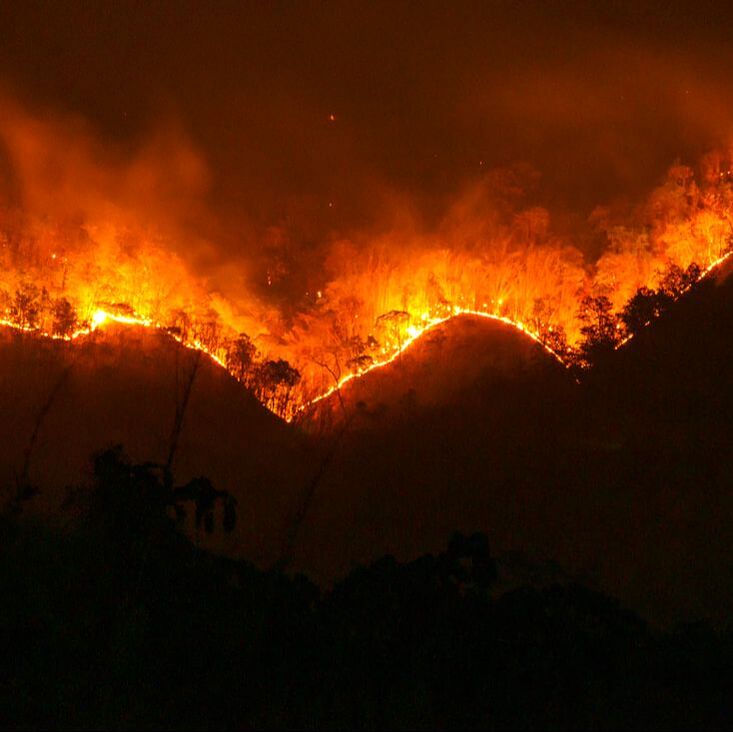

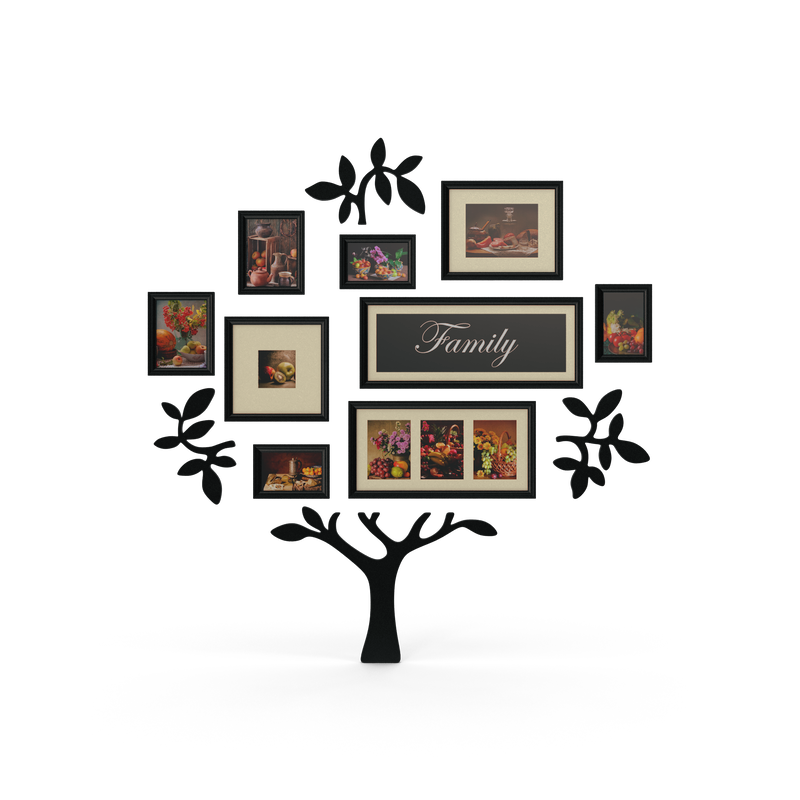
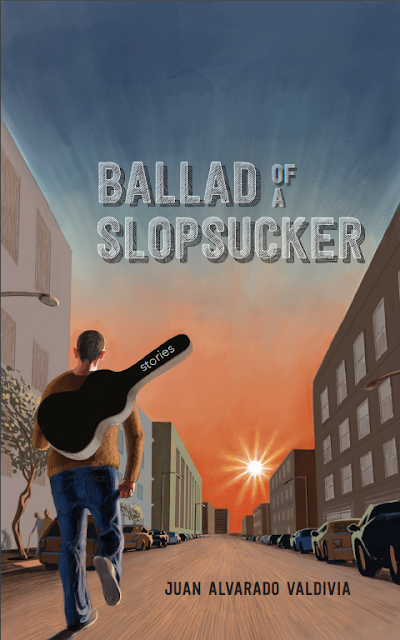
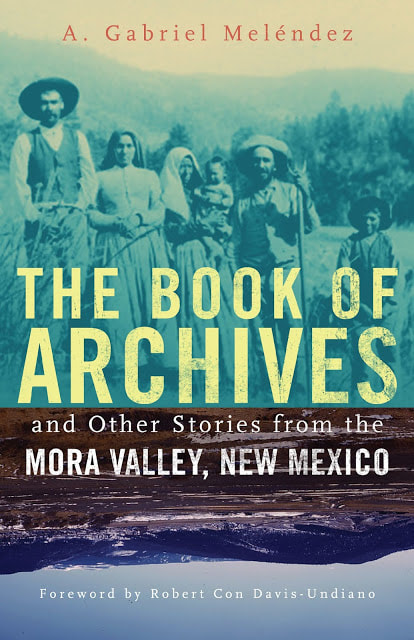

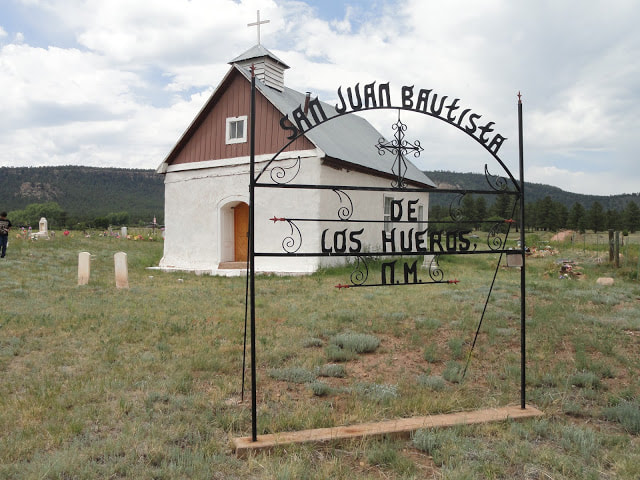

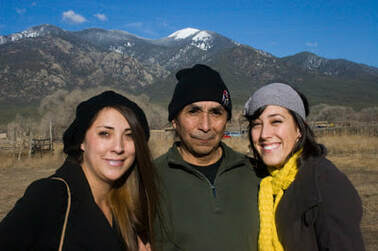


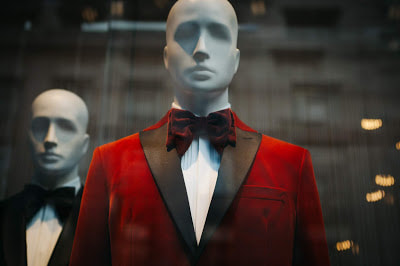


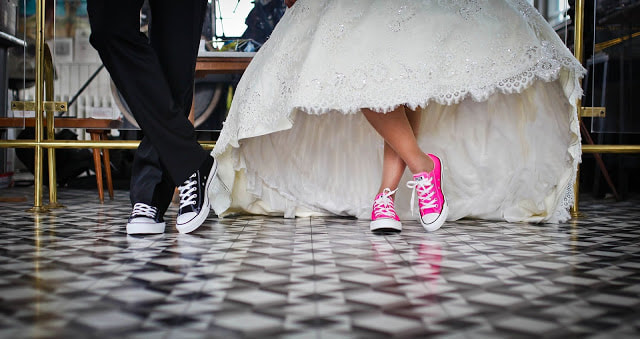
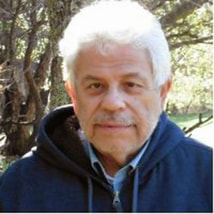

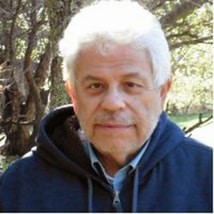
 RSS Feed
RSS Feed